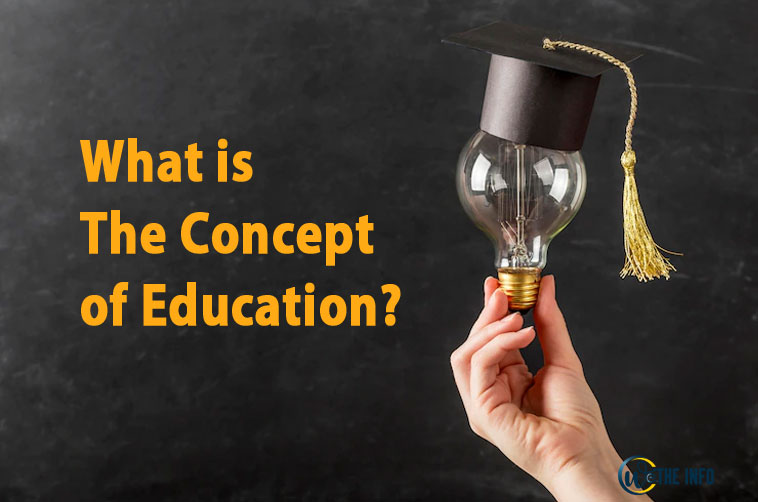The concepts of education are based on ideas about the nature of both a person (his maturation, growth, development, opportunities for education and training) and various groups of people. The ideas of society changed, scientific knowledge expanded, and after them new views on education, its foundations, goals, and possibilities arose. The time of programmed decisions is a thing of the past, and the uncertainty of tasks and situations is increasing. This entails a revision of the significant psychological qualities of a specialist. For example, the industrial economy requires a specialist performance accuracy, the ability to obey authority, and the ability to put up with lifelong monotonous work. The information economy put forward other requirements: the ability to quickly respond to changes, be proactive, communicative, etc.
Among the numerous theories formulated by mankind throughout its history, ten can be distinguished, the relevance of which for pedagogy is not lost today.
Structuralist theories
go back to the ideas of Pythagoras about harmony as one of the principles of everything that exists, including man. Hence the main task of education was formulated – to bring into harmony various spiritual movements, to achieve the proper balance between the bodily and spiritual side of a human being.
Sensationalist theories
also originated in Antiquity. Aristotle and other thinkers believed that a person is endowed with the ability to learn from birth. However, not everyone can give education, but only those who are familiar with the methods and conditions of the mental life of the pupil are necessary for this. There were three types of education: physical, moral, and mental. As a means of education, it was proposed to study such disciplines as grammar, rhetoric, dialectics (logic), mathematics, graphics, politics, music, and astronomy.
Thomistic approach
– its founder, philosopher, and theologian of the XIII century. Thomas Aquinas synthesized reason and faith, philosophy and theology, activity and contemplation. He began with premises based on Revelation and moved on to a philosophical study of man and nature. In his model of the pedagogical process, the most important agent was the student, whose goal is to acquire the ability to self-educate. Intellectually independent, he must manage his own research and discoveries. Thomas Aquinas especially emphasized the importance of intellectual discipline (rigidly disciplined rationality gives a person the opportunity to embark on the path of moral perfection), and in the hierarchy of values, he assigned a significant place to the practical applications of reason.
Humanistic theories
that originated in the XIV-XV centuries. (P. Vergerio, J.L. Vives, etc.), once again turn their attention to the educational ideal of Antiquity – a person with a healthy mind and body. At the beginning of the XX century. humanistic pedagogy experienced a new take-off (E. Kay, G. Gaudig, A. Neal, and others). In modern foreign pedagogy, this approach is based on the ideas of psychologists A. Maslow, K. Rogers, and their followers.
Apperceptive theory
proceeds from the position according to which learning is based on the association of ideas and elements of experience. Thinking determines the distribution of ideas between the conscious and the subconscious with the help of apperception (from Latin ad – to and regcertio – perception) – explicit and conscious perception of an impression, sensation. New ideas enter into an associative relationship with existing ideas, forming a conceptual matrix (apperceptive mass). The established mass of apperception needs to be accommodated to a new experience. This implies both the intellectual leadership of the teacher and the spontaneous creative activity of students. The main ideas of this theory were laid down in the works of J. Locke, then they were developed in the works of I. Herbart, and the experimental studies of J. Piaget played a huge role.
Do you like to read about What is technological education?
Marxist theory
has historical roots in the logical constructions of Plato, I. Kant, G. Hegel, and A. Smith. In essence, this is a deeply human theory, in contrast to the many different Marxist interpretations of the pedagogical ideas of K. Marx. The theory proceeds from the assumption that for proper human growth and full maturation, a favorable environment and a rationally arranged society are necessary, which determine the upbringing of an independent, socially active, and responsible person. The freedom of the individual is achieved not by her flight from social ties, but thanks to them. Education must overcome the alienation of the individual. State intervention in education comes down to a democratic expansion of access to it, but the reproduction of what is truly human in a person is the task of each individual.
Behavioral theory
in its most developed form is presented in the writings of BF Skinner. The American psychologist emphasized the possibility and necessity of managing socially positive human behavior with the help of a scientifically organized pedagogical process. Behavior management, for which there is no alternative, involves the creation of conditions for the successful assimilation of knowledge and skills. From here originate programmed learning and an operationally defined taxonomy of goals in the pedagogical process.
The pedocentric approach
goes back to the ideas and practice of Socrates, who believed that virtue is knowledge and therefore it can be learned. Socrates created a special method of teaching that bears his name. A series of leading questions helps the thought to be born in the student’s head. The pedocentric approach is aimed at adapting the school to the child, and not just the child to the school. In its modern form, this campaign is clearly outlined in the works of J .Zh. Rousseau, J. G. Pestalozzi, F. W. Parker, K.D. Ushinsky. Teachers create teaching, educating, and developing cultural environment, exploring which children self-educate and self-determine (M. Montessori, J.O. Decroly, S.T. Shatsky, etc.). The role of the teacher is reduced to counseling and assistance in self-education, and self-development.
Existentialist approach
represented by models of the pedagogical process based on an understanding of the process of choice and decision making (S. Kierkegaard, M. Buber, N.I. Pirogov, etc.). The existential situation is set here and now, and not only traditions and principles are important in its outcome. For self-determination as a single, separate, unique personality, and not just as a member of any group, a growing person needs to establish relationships with others I and with You (God). The main thing in the pedagogical process is the dialogue of the individual with the world, during which his responsibility for himself and for the world arises and strengthens. The positive result of this process depends on the degree of truth of the personality (“to be, not to seem”). There is continuity between the flow of life and learning, so knowledge divorced from life can be neither the goal nor the content of education
Personality-oriented approach
– its founders focus primarily on the subject-subject type of interaction implemented in joint activities. Here are two full-fledged actors who have their own motives, goals of the activity, and corresponding abilities for its implementation. The student, relying on universal, over-subject skills, is capable of independent implementation of activities due to the reliance on his individual experience. At the same time, the teacher is open to interaction, focused on the personality of the student, and implements a democratic, encouraging leadership style. The student is active, proactive, and open to interaction with the teacher and the group.
Various concepts of education do not exclude, but rather complement each other, their knowledge expands the thinking of the teacher, and enriches his professional tools (means, methods, techniques, forms). The essence of pedagogical thinking is that all generally binding principles are modified in any of their practical application. Concretized, theoretical knowledge adapts to a unique individual situation and/or case. It is transformed, revised, modified.
This post was created with our nice and easy submission form. Create your post!




